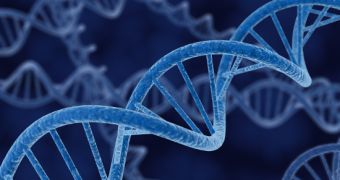Researchers at McGill University now claim that, at some point in the future, it might be possible to use “cages” engineered from DNA strands to deliver certain small-molecule drugs directly into a patient's diseased cells.
These “cages” would basically be biological nanostructures, the scientists explain.
They could be engineered in such ways that they would only release their “cargo” when confronted with a certain stimulus, hence the fact that they would make drug delivery both easier and more effective.
“Many diseased cells, such as cancer cells, overexpress certain genes. In a future application, one can imagine a DNA cube that carries drug cargo to the diseased cell environment, which will trigger the release of the drug,” researcher Thomas Edwardson says.
“DNA structures can be built with great precision, they are biodegradable and their size, shape and properties can be easily tuned,” he adds. Science News explains that, more often than not, DNA is thought of as the carrier of genetic information from one generation of living organisms to the next.
However, it can also be toyed with and made to form nanometre-scale structures, the same source informs us.
The scientists at McGill University have managed to do just that with the help of lipid-like molecules. Thus, the latter were used to bind DNA strands together and make them form cubes.
The inside of such cubes could serve to transport drug molecules to very precise areas in the human body, the researchers argue.
More so given the fact that the very same lipid-like molecules used to engineer the cubes can also be used to make several such biological “cages” bind with one another and form somewhat bigger structures.
The McGill University scientists, together with researchers at the Lady Davis Institute for Medical Research at Montreal's Jewish General Hospital, are now using such DNA nanostructures to treat cancerous cells and lab animals.
The experiments are intended to shed some light on the effectiveness of these biological “cages” in terms of treating various medical conditions.

 14 DAY TRIAL //
14 DAY TRIAL //